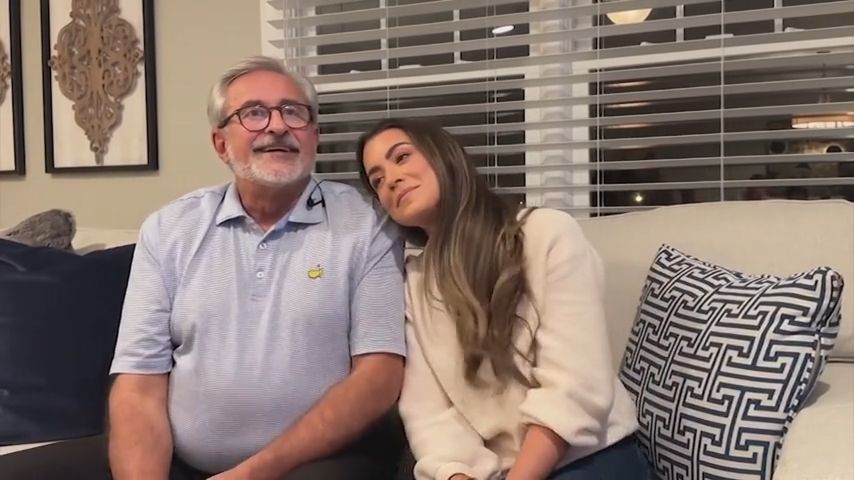CHARLOTTE, N.C. — A Charlotte woman is holding out hope that someone will give her the gift of time.
Mary Liapis has a genetic disorder called polycystic kidney disease.
It causes painful cysts to grow on a kidney.
She has a long family history. Her grandfather Dennis died from the inherited disease because medicine was not advanced at the time.
Fifteen years ago, her 88-year-old mother Katherine Katsanos received a donor kidney, and her brother Bill Katsanos received a donor kidney from a former employee.
"My experience was low back pain, cysts rupturing, which were extremely painful, and followed by migraines," Bill Katsanos said.
Tara Espinoza was working as a waitress in Bill Katsanos' restaurant 16 years ago. One day the college student saw the normally fun-loving Katsanos sitting in the break room with the lights off and not feeling well.
“I walked away from the conversation learning how sick he was, and I kind of felt bad for him, saying, 'How can I help?'" Espinoza said.
Her words turned into actions.
She took a blood test and was a match for him. Her concern turned to compassion and determination.
"It was a little bit scary, but like I can actually do this and help somebody, I can save a life," she said.
But some of her family members had a lot of questions and concerns.
"They were like, 'Did you think about this? Did you do your research? I don't know if this is a great idea.' And I was like, 'I did do my research you know, and you learn that your kidney grows twice the size and you can be fully functional and healthy with one kidney,' and I was. And the doctors aren't going to let you do it if there's a risk there that's going to affect you later in life. I work out like normal, I socialize like normal, I haven't had any health issues," Espinoza said.

Bill Katsanos is grateful.
"We ask and pray for miracles all day, and this was my miracle," he said.
So even though Katsanos and his mom have donated kidneys, Katherine Katsanos' daughter and Bill Katsanos' sister Mary Liapis is on the transplant list still waiting for one.
"I'm stage 4, and I’ll be starting dialysis in the coming year. Sometimes if I’m walking, it's a stabbing pain," Liapis said.
Espinoza has this message to people who are thinking about being tested to be living donors: "If you're a match and you want to help save somebody's life, just do it."
That's what Bill Katsanos wishes for his sister: more moments and more memories.
"It's tough on her. I know what I went through, and see what she goes through," he said.
And with her other daughter translating Greek to English, Katherine Katsanos' love for Liapis is unbounded and unending
It's tough to hold back the tears.
"Day and night I have hope that she will have a kidney one day," Katherine Katsanos said.
And that's what Liapis is hoping for herself, hoping for the gift of time.
“[I have] a lot of living to do. I have a granddaughter, she’s my life. My daughter is my life too. My hope is that I’m as lucky as my brother and my mother and my aunties to get a kidney," she said.
Liapis’ sister-in-law created a website to share the family’s story and to educate potential donors.
The National Kidney Foundation says more than 100,000 Americans like Liapis are waiting for a kidney.
According to the foundation, there are three main blood tests that determine if a patient and a potential donor are a kidney match: blood typing, tissue typing and cross-matching.



